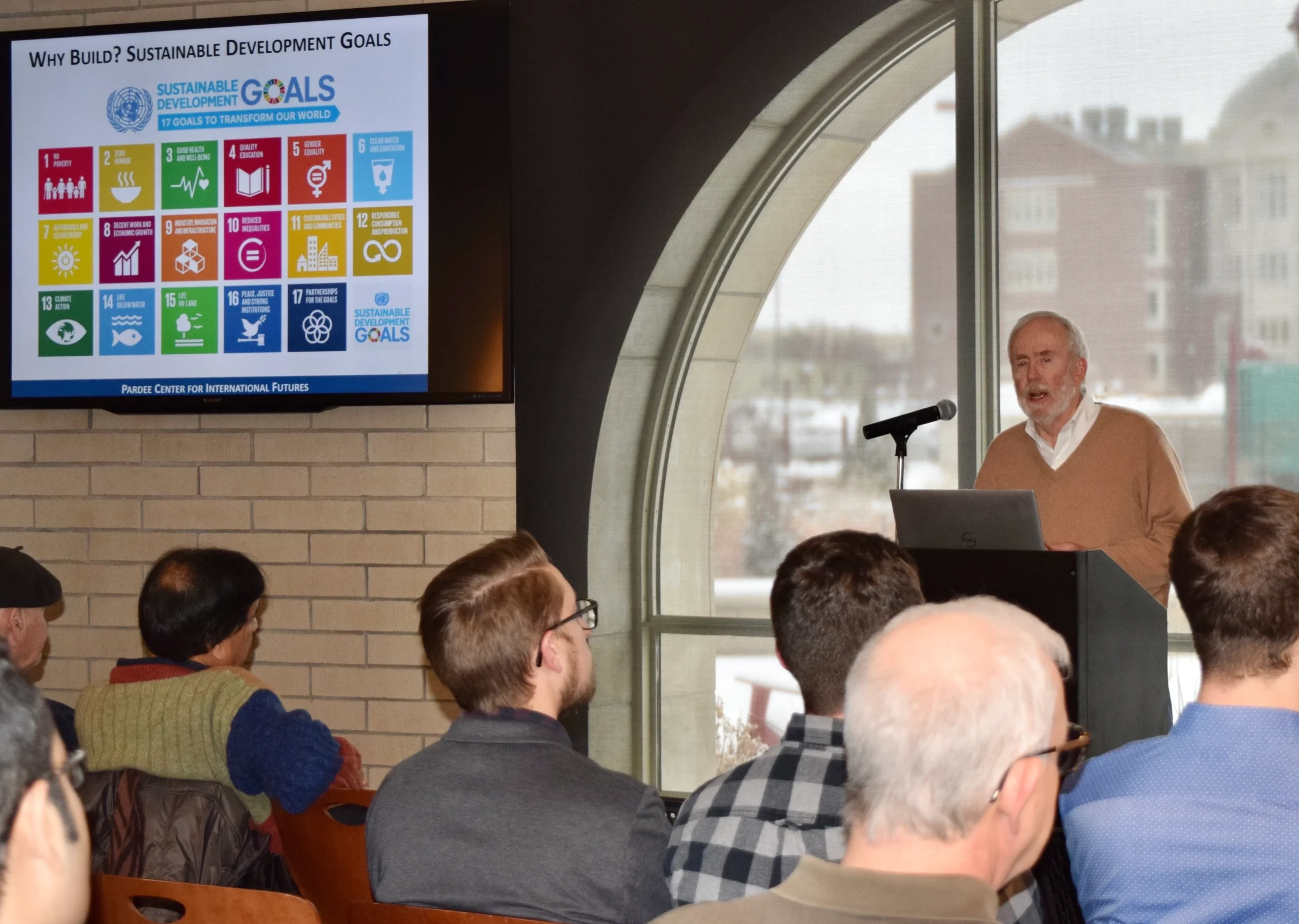We encourage the free use of IFs in academic settings anywhere. Some of the other institutions where IFs has been used are the University of Arizona, University of California (UCLA), University of Connecticut, University of Hawaii, University of Kentucky, University of South Carolina, Indiana University, the Ohio State University, the Pennsylvania State University, Fairfield College, Gettysburg College, and Wheaton College. Syllabi for some of those courses can be found below. We are happy to post and share syllabi from courses using IFs. Please submit them to us.
- International Futures: Harvey Starr, University of South Carolina
- Economic Statecraft: Evan Hillebrand, University of Kentucky
- Geopolitical Modeling: Evan Hillebrand, University of Kentucky
- International Political Economy: Mark Boyer, University of Connecticut
- Exploring the Global Future: Mark Bremer, Penn State University
- Models and Policy Analysis: Daniel Borock, Gettysburg College
- Policy Issues in Sustainable Development: Liza Shaffer, UCLA Center for American Politics and Public Policy (DC)
- Theories of International Relations: Mark Boyer, University of Connecticut
- The Politics of Global Problems: Brian Pollins, Ohio State University
- Theories of International Relations: William Dixon, University of Arizona
- Contemporary International Politics: Elizabeth Hansen, University of Connecticut
- Latin American Economics: Gordon Weil, Wheaton College


